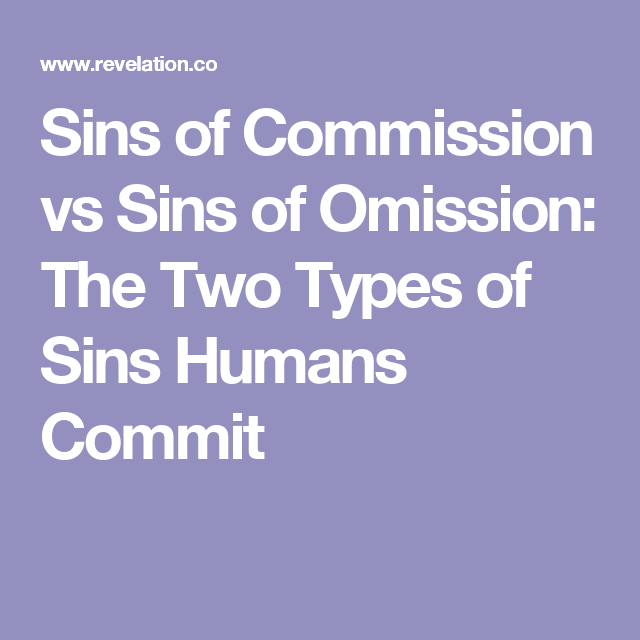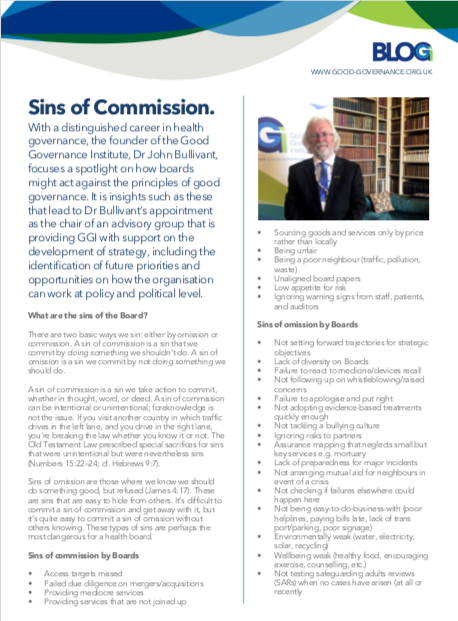What are the sins of the Board?
06 August 2019

With a distinguished career in health governance, the founder of the Good Governance Institute, Dr John Bullivant, focuses a spotlight on how boards might act against the principles of good governance. It is insights such as these that lead to Dr Bullivant’s appointment as the chair of an advisory group that is providing GGI with support on the development of strategy, including the identification of future priorities and opportunities on how the organisation can work at policy and political level.
There are two basic ways we sin: either by omission or commission. A sin of commission is a sin that we commit by doing something we shouldn’t do. A sin of omission is a sin we commit by not doing something we should do.
A sin of commission is a sin we take action to commit, whether in thought, word, or deed. A sin of commission can be intentional or unintentional; foreknowledge is not the issue. If you visit another country in which traffic drives in the left lane, and you drive in the right lane, you’re breaking the law whether you know it or not. The Old Testament Law prescribed special sacrifices for sins that were unintentional but were nevertheless sins (Numbers 15:22–24; cf. Hebrews 9:7).

Sins of omission are those where we know we should do something good, but refused (James 4:17).These are sins that are easy to hide from others. It’s difficult to commit a sin of commission and get away with it, but it’s quite easy to commit a sin of omission without others knowing. These types of sins are perhaps the most dangerous for a health board.
Sins of commission by Boards
- Access targets missed
- Failed due diligence on mergers/ acquisitions
- Providing mediocre services
- Providing services that are not joined up
- Sourcing goods and services only by price rather than locally
- Being unfair
- Being a poor neighbour (traffic, pollution, waste)
- Unaligned board papers
- Low appetite for risk
- Ignoring warning signs from staff, patients, and auditors
Sins of omission by Boards
- Not setting forward trajectories for strategic objectives
- Lack of diversity on Boards
- Failure to react to medicine/devices recall
- Not following up on whistleblowing/raised concerns
- Failure to apologise and put right
- Not adopting evidence-based treatments quickly enough
- Not tackling a bullying culture
- Ignoring risks to partners
- Assurance mapping that neglects small but key services, e.g. mortuary
- Lack of preparedness for major incidents
- Not arranging mutual aid for neighbours in event of a crisis
- Not checking if failures elsewhere could happen here
- Not being easy-to-do-business-with (poor help lines, paying bills late, lack of transport/ parking, poor signage)
- Environmentally weak (water, electricity, solar, recycling)
- Well-being weak (healthy food, encouraging exercise, counselling, etc.)
- Not testing safeguarding adults reviews (SARs) when no cases have arisen (at all or recently)


